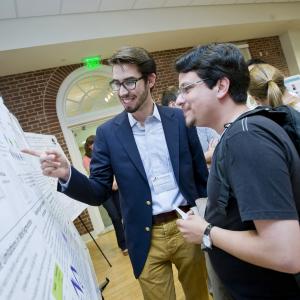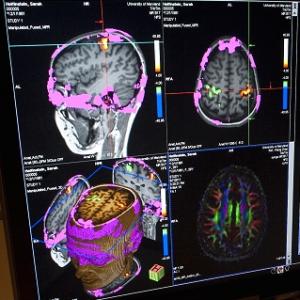Psychology and Neuroscience of Language
In order to communicate, both the speaker and the hearer need to access information about each word’s meaning, about grammar, and about the social context, within a few hundred milliseconds of encountering each new word. How does our brain find the right information so quickly? Where in the brain is such information stored? How do we remember all the words that make up a long sentence long enough to interpret it?
The University of Maryland has unparalleled resources for psycholinguistic and cognitive neuroscience research on language. Some distinctive features of the Maryland group include its expertise in cross-language research (e.g., recent studies on Japanese, Hindi, Mandarin, Portuguese, Basque, Russian, American Sign Language, and Spanish); its use of diverse tools to investigate language-related processes (reading time, eye-movement measures, EEG and MEG measures of millisecond-grain brain activity, and fMRI measures of brain localization); and its work involving neuro-computational modeling of language processing and studies of developmental and atypical populations.








